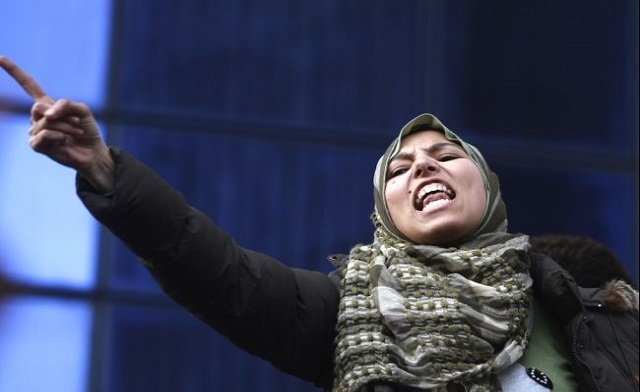The role of women in the economy and how their economic power should be harnessed was discussed at the American Chamber of Commerce’s ‘Women in Business’ conference with all panellists agreeing that the role of women in the economy should not marginalised.
President of the American Chamber Anis Aclimandos said it would be a mistake for any country to marginalise 50% of its population, referring to women and their role in economic development.
Yehia El-Husseiny, corporate governance officer at the International Finance Corporations (IFC), said that the even though 25% of women are employed, approximately two-thirds of Middle Eastern companies enforce laws that discriminate against women.
“Companies with women on their board have made a return in assets three times higher than companies without women in their boards,” he added. Companies with female representatives have a return on equity two times higher than those that do not have women, El-Husseiny noted.
The IFC executive added that board meetings attended by women have more discipline than ones without female attendance.
“Women come to meetings more prepared [than men],” he added.
Nadia El-Saeed, CEO of Bank Al-Etihad in Jordan, discussed the low economic participation of women in Jordan. She said women’s participation accounts for just16%, which affected the gross domestic product by approximately 10%.
The CEO said Al-Etihad has started a mission to encourage women in male-dominated fields and has partnered with IFC to look at understanding the needs of women.
“Tackling this demographic is similar to tackling small- and medium-sized enterprises … It is about the whole ecosystem,” she said.
“You [banks] have to look at training and mentorship, besides financial services,” El-Saeed said.
“We managed to create a window to see what has been done is similar counties,” she added.
The bank executive said that their financial services have been tailored for women in the market and the bank approached the market with this proposition at the end of 2014.
“When you deal with women, you deal with the whole household,” she said. “Women make most of the financial decision in a household.”
Kathrin Hamm, operations officer at the IFC, said previous reports conducted by the IFC highlighted that lack of financial access for women appeared to be an issue in the Middle East.
“When offering loans, women were found to be hesitant to take out loans,” Hamm said.
The IFC started offering non-financial services to understand the reasoning behind that hesitance, she added.
Lack of information, lack of training, lack of consulting, and lack of experience in networking were found to be the reason.
Women also find it hard to trust banks, Hamm explained, adding that the IFC should raise women’s awareness in that aspect.
Shatssy Hassan, chief security officer at Commercial International Bank, said the risk of default rates for women are lower than men, which makes banks more willing to offer them finances.




